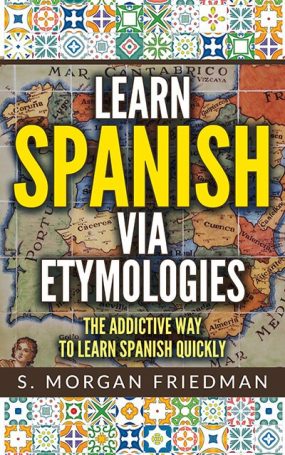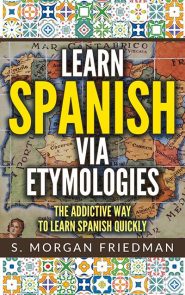It is both surprising and funny that in Spanish, a Flea Market is translated to be, literally, exactly the same: Mercado de Pulgas.
But it is even more surprising (although probably less funny) that flea and its Spanish translation, pulga, are close cousins – despite the different sounds.
Both derive from the Indo-European *plou. To understand this transformation, we should remember that the Indo-European p- sounds stayed the same in Latin (and thus Spanish) but became an f- sound in German (and thus English).
Therefore, the f-l of flea maps exactly to the p-l of pulga!



